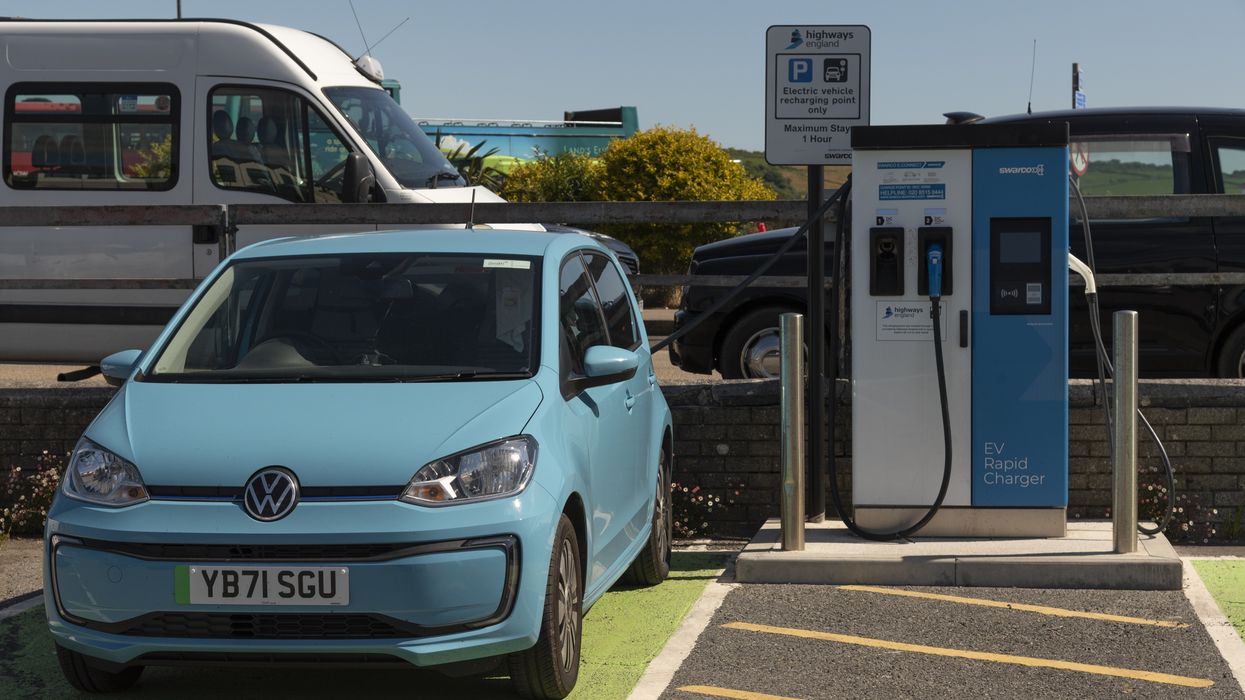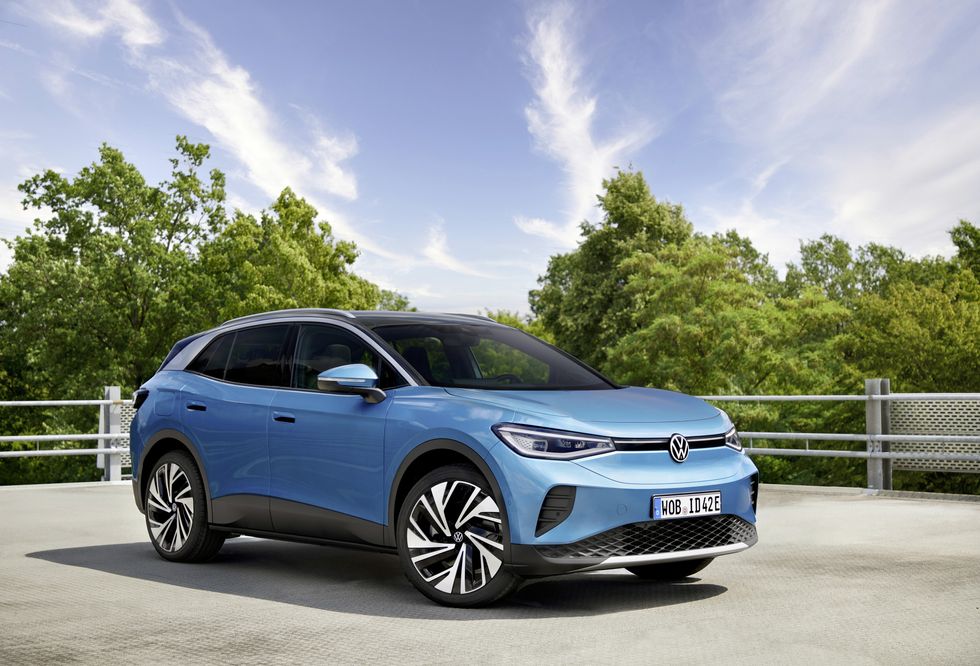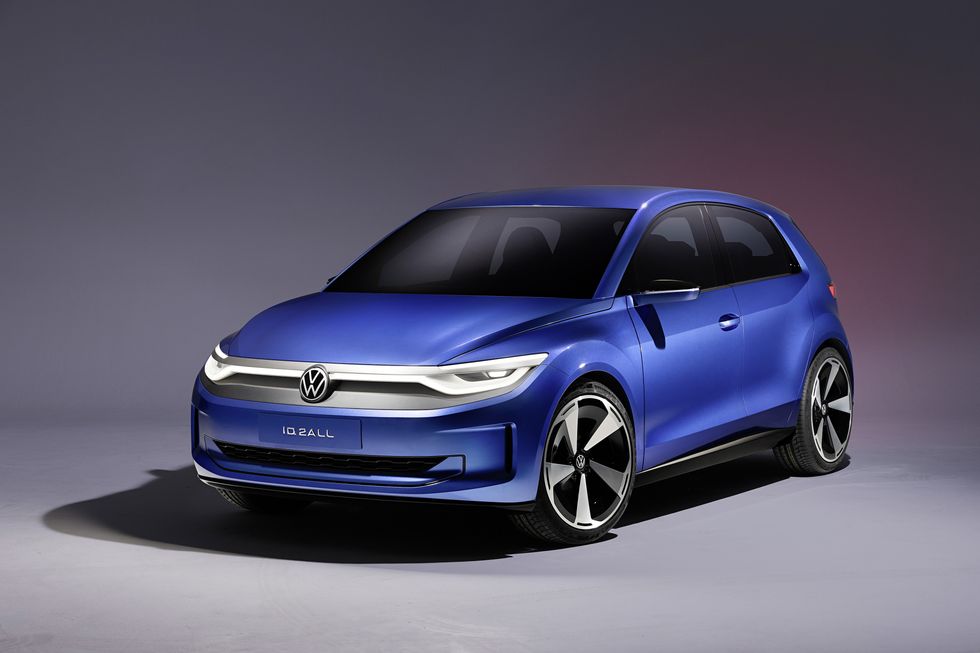Major car brand likely to delay huge electric vehicle project despite plans for a cheap £17,000 EV

Volkswagen looks set to delay some of its EV plans until after 2030
| GETTY
There are some concerns that manufacturers may need to accelerate EV plans before the 2035 car ban deadline
Don't Miss
Most Read
One of the world's most popular vehicle brands has delayed a key electric model by almost a decade amid concerns that could hamper development.
According to the Handelsblatt newspaper, Volkswagen will delay the launch of the Trinity Project until 2032, having already been delayed until 2028 after an original start date of 2026.
VW had planned to launch a new ID.4 SUV model from its next-generation Trinity platform, although Volkswagen Group CEO Oliver Blume has delayed the plans due to "software issues".
It has been reported that the electric vehicle will now be released in 2032, with a different version of the ID.4 expected to be released.
Do you have a story you'd like to share? Get in touch by emailing motoring@gbnews.uk

The 2023 Volkswagen ID.4 electric SUV
|VOLKSWAGEN
Volkswagen already has several electric vehicles on the UK market including the ID.3 hatchback, ID.4, ID.4 GTX, ID.5 SUV, ID.5 GTX, ID.7 saloon, ID.7 Tourer and the wildly popular ID.Buzz campervan.
There are currently a handful of ID.4 models available on the market. This includes the standard ID.4 with 224-mile range (£42,640), the £44,360 ID.4 Pro (349-mile range), the Pro Performance 4MOTION (£46,080 and 326-mile range) and the GTX 4MOTION (£54,205 and 321-mile range).
Earlier this year, Volkswagen said it would create an "all-electric entry-level mobility" vehicle, set to cost just €20,000 or £17,176 with an expected launch in 2027.
Thomas Schäfer, CEO of Volkswagen Passenger Cars, said: "The future is electric. In order for electromobility to become widespread, attractive vehicles are needed, especially in the entry-level segment.
"Our brand promise is: electromobility for all. This promise is now being fulfilled in the Brand Group Core."
Some manufacturers may be required to speed up their electric vehicle plans in the near future amid uncertainty around the sale of new internal combustion engine vehicles and when they will be banned.
The new Labour Government has pledged to reinstate the original 2030 deadline to ban the sale of new petrol and diesel vehicles after former Prime Minister Rishi Sunak delayed net zero plans.
Speaking to GB News, a Government spokesperson said that an announcement on any law changes relating to the car ban would be made "in due course".
They added that it is fully committed to supporting the transition to electric vehicles through legislative changes, as well as installing more EV chargers around the country.
The spokesperson continued, saying: "We will provide certainty to manufacturers by restoring the 2030 phase-out date for new petrol and diesel cars."
This will work hand-in-hand with the Zero Emission Vehicle mandate to encourage the manufacturing and sale of new electric cars to help motorists adapt to more environmentally friendly vehicles.
By the end of the year, major manufacturers around the UK will be required to have 22 per cent of total sales come from zero emission cars and 10 per cent from cleaner vans.
LATEST DEVELOPMENTS:

The Volkswagen ID.2all concept car is expected to cost less than £21,500
|VOLKSWAGEN
This will continue to increase over the coming years, reaching 80 per cent of all new cars by the end of the decade and 100 per cent by 2035, although it is unsure whether this rule will be carried forward until 2035 or 2030.










